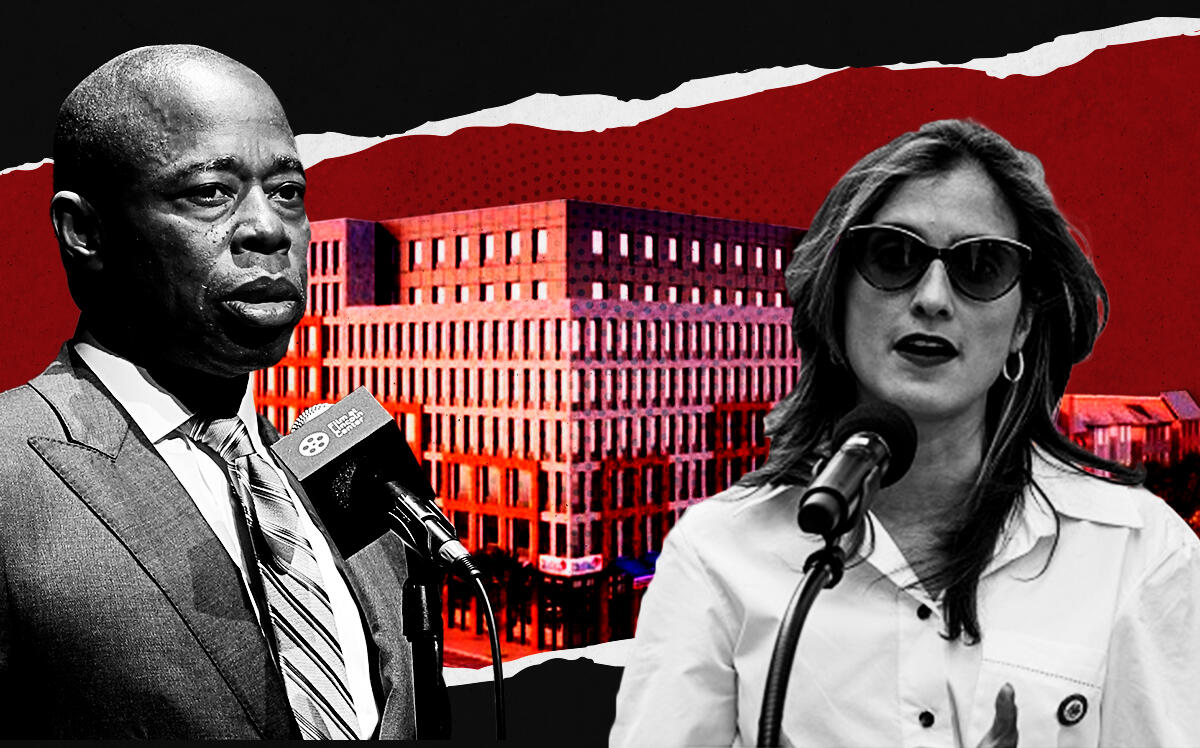 Rezoning for more housing costs developers a fortune: report
Rezoning for more housing costs developers a fortune: report
Trending
Council, developers strike deal in controversial Throggs Neck rezoning
The plan to build 348 apartments, up to 166 of them permanently affordable, already had support from the mayor.

In a big win for Mayor Eric Adams and housing developers, after a year and a half of protests and negotiations, the Bruckner Boulevard rezoning will pass.
Council member Marjorie Velázquez announced that she has struck a deal with Throggs Neck Associates, a group of developers seeking to upzone a portion of the low-density neighborhood. The rookie politician had been under intense pressure from local opponents of the project, whose tallest building was to be just eight stories.
Their project would consist of four buildings with 348 apartments, up to 166 of them permanently affordable, and would replace an empty batting cage and 12 vacant parcels. The developers, who include local Super Foodtown owner Joseph Bivona, would revamp the supermarket and create 54,000 square feet of commercial space.
In an unusual move, the mayor had come out in favor of the project before the local Council member reached a deal to ensure its passage. Bronx Borough President Vanessa Gibsonalso backed it, but Velázquez was the politician whose vote the developers needed most.
In brief comments announcing the deal, Velázquez did not elaborate on the concessions she was able to extract from the developers. But in a hearing last month, Velázquez said that she would not support the project without assurances that local infrastructure can handle it and local labor will build it.
She also called for community engagement and “real affordability,” meaning more than required by the city’s Mandatory Inclusionary Housing law.
Velázquez said the housing crisis requires action, but “that does not mean that we hand our keys to developers. That does not mean that we remove our art of negotiation from our Council members.”
Read more
 Rezoning for more housing costs developers a fortune: report
Rezoning for more housing costs developers a fortune: report
 Adams throws support behind controversial Bronx rezoning
Adams throws support behind controversial Bronx rezoning
The developers told a Council subcommittee last month that it had an agreement to use 32BJ SEIU building service workers and had a memorandum of understanding with Local 79 Laborers regarding construction.
Velázquez asked whether they would use union carpenters, but the developers’ representative remained noncommittal. Representatives for Velázquez, the developers and the carpenters union did not immediately respond to requests for comment.
Council member Kevin Riley said up to 50 percent of the developments’ apartments would be affordable, including a 99-unit, 100 percent affordable building for seniors. The projects would far exceed the minimums established under Mandatory Inclusionary Housing.
Some community members vociferously opposed the project, sometimes resorting to vitriol. Velázquez even skipped one community meeting, citing threats made against her personal safety.
Addressing the Council members who supported her during the negotiations, Velázquez pushed back against suggestions that the Council abandon member deference to better fight the housing crisis.
“Member deference is not dead and I love you for that,” Velázquez said.
Her implication was that had she not agreed to a deal, her colleagues would not have overridden her.
But City Council Speaker Adrienne Adams had sent an unambiguous signal last week when she told the New York Times, “I reject that this will be a Council that says no to housing, given the scale of the crisis we face.”
She added that the Council would continue to value community input, but not “irrational opposition that rejects desperately needed housing.”




